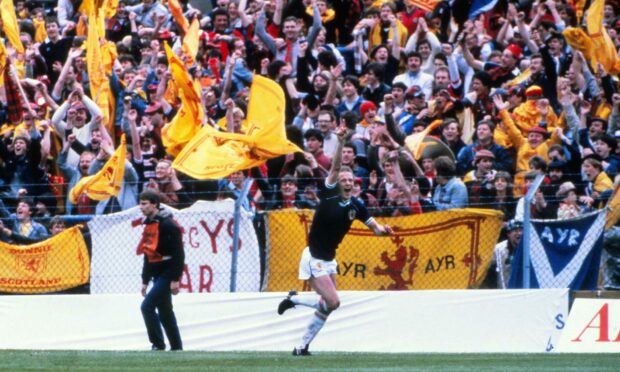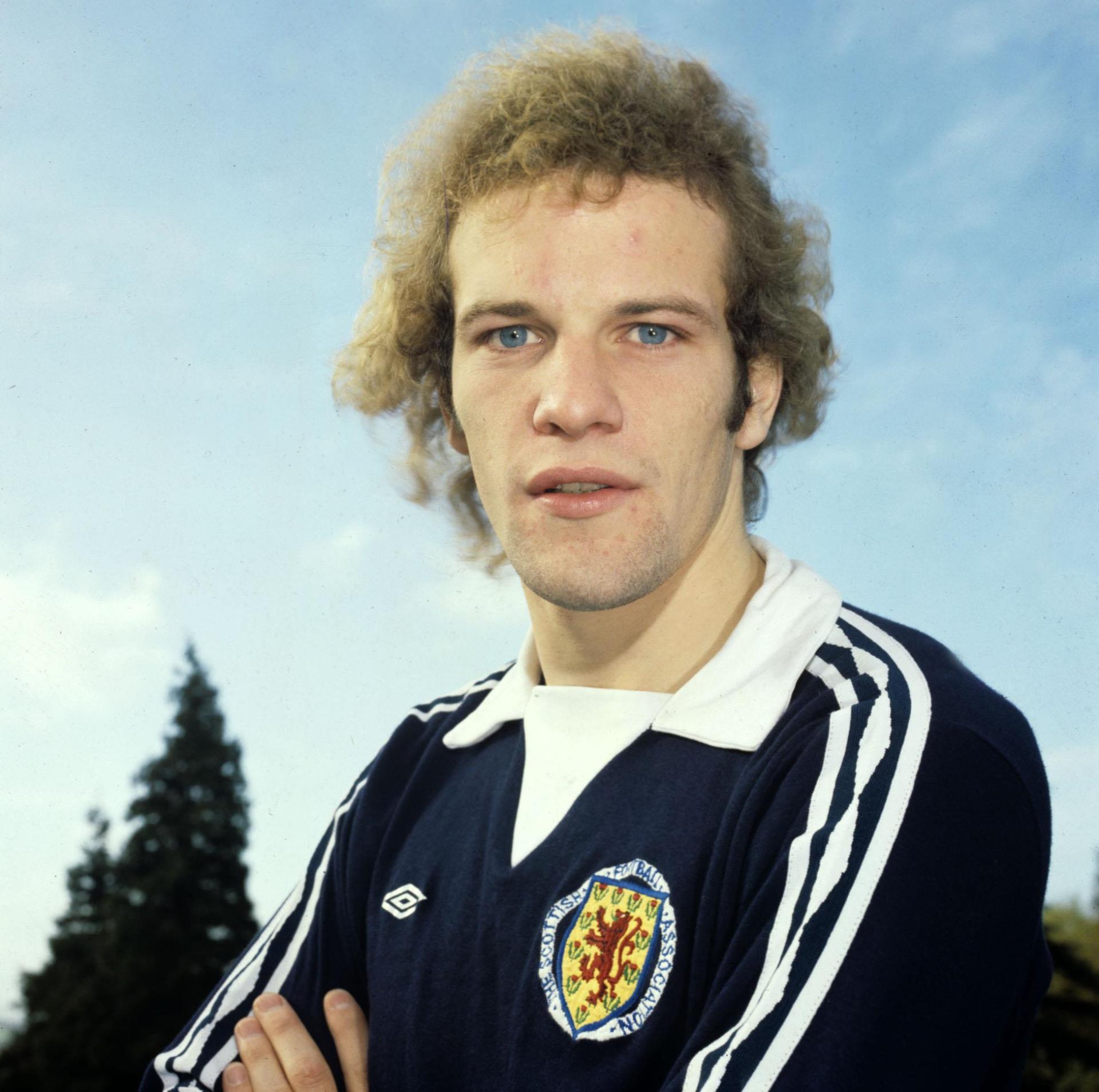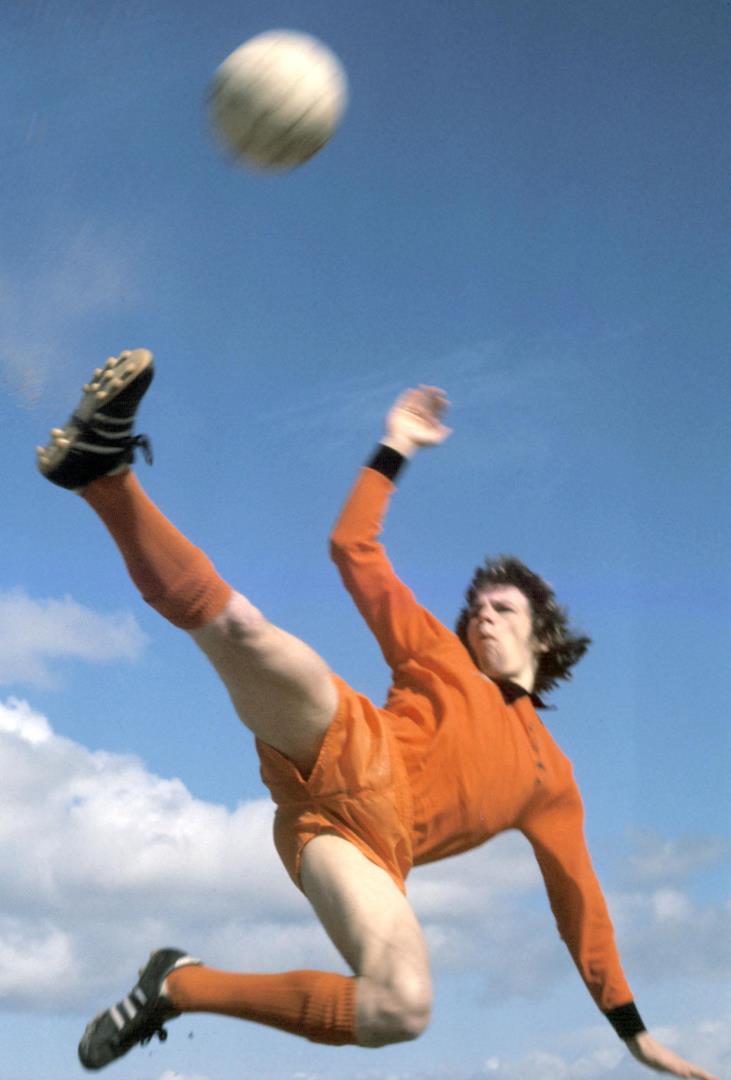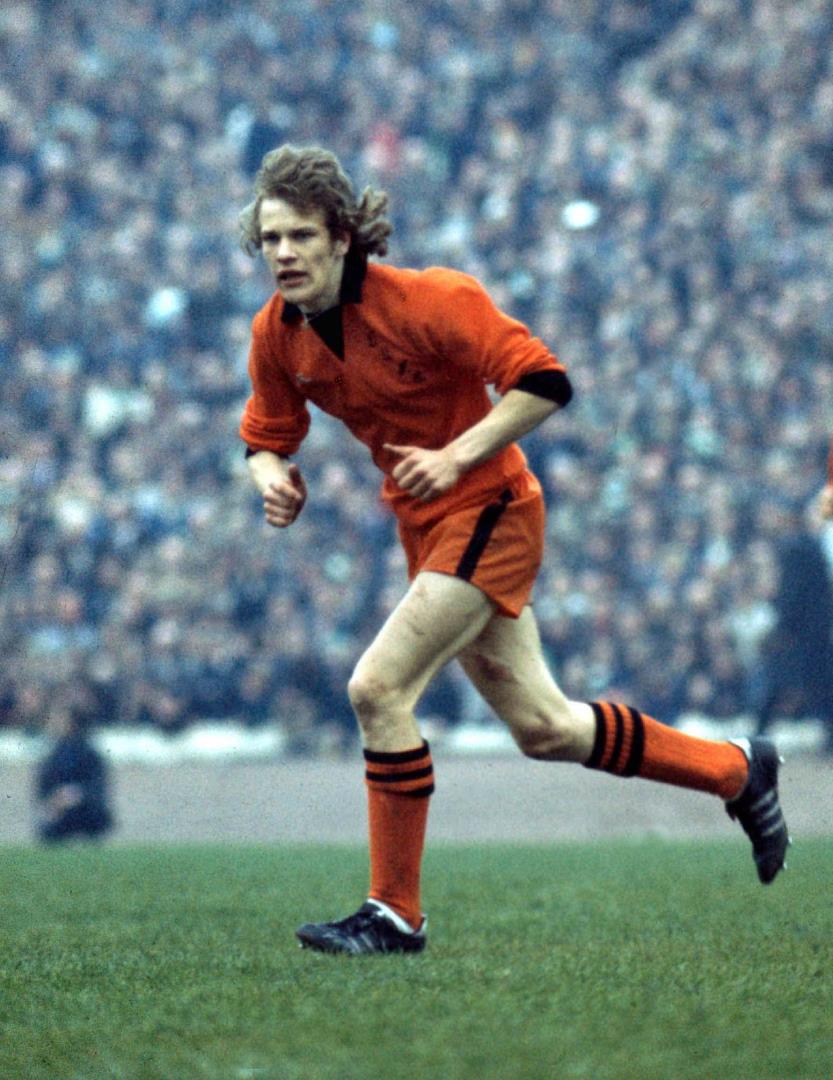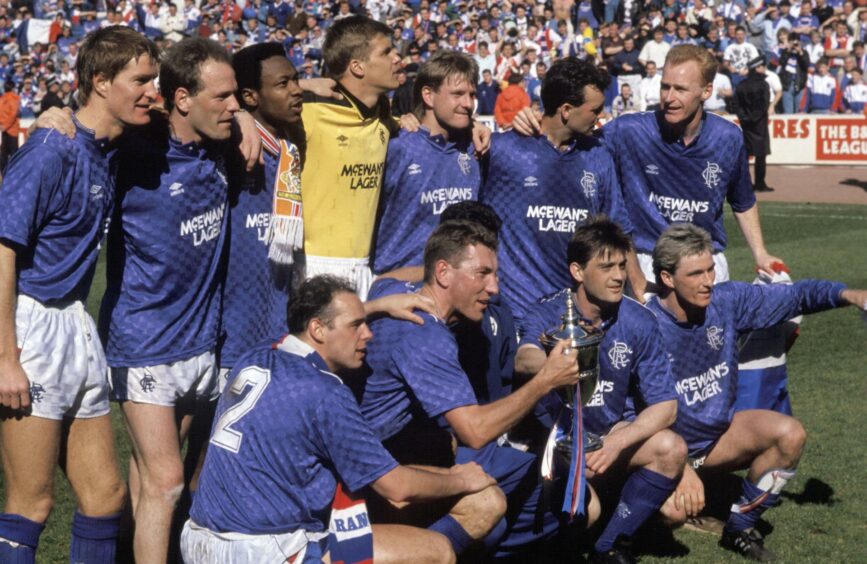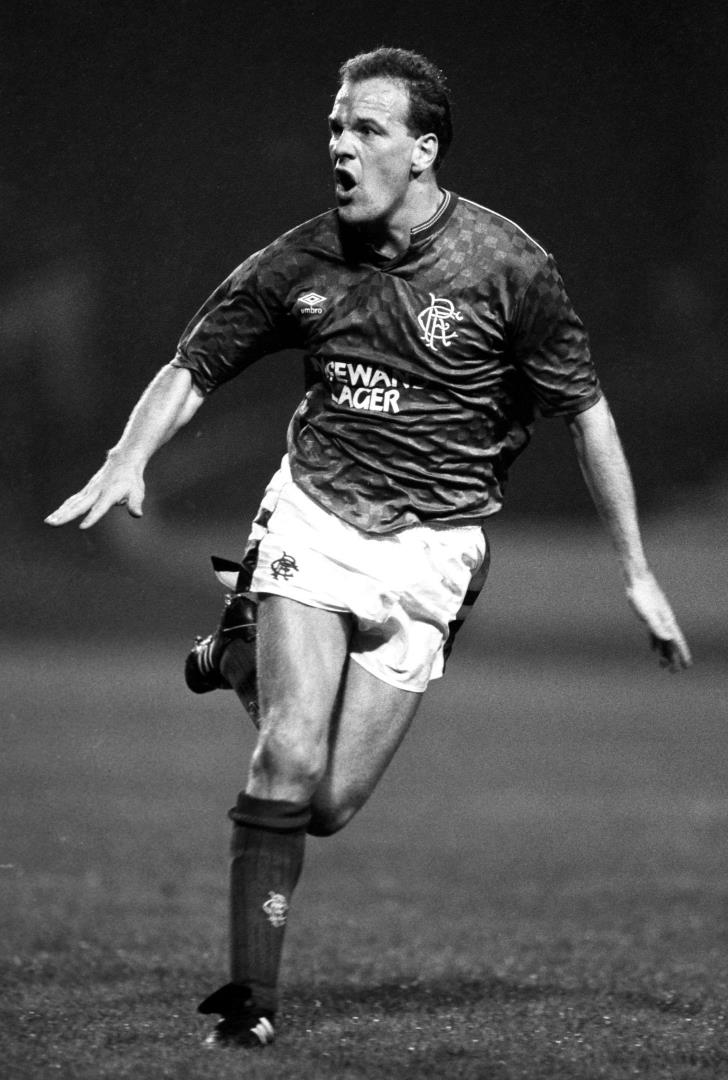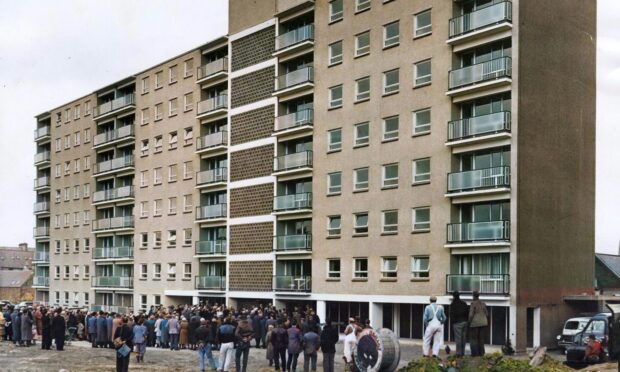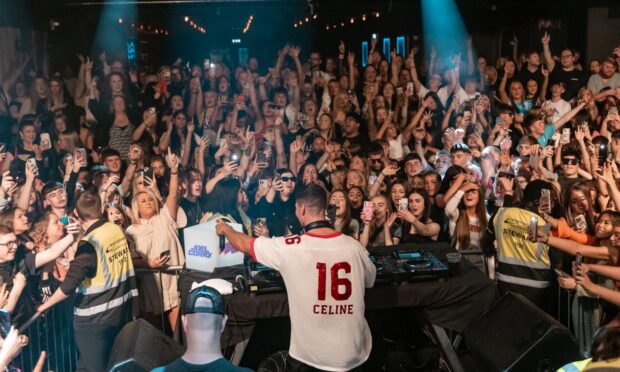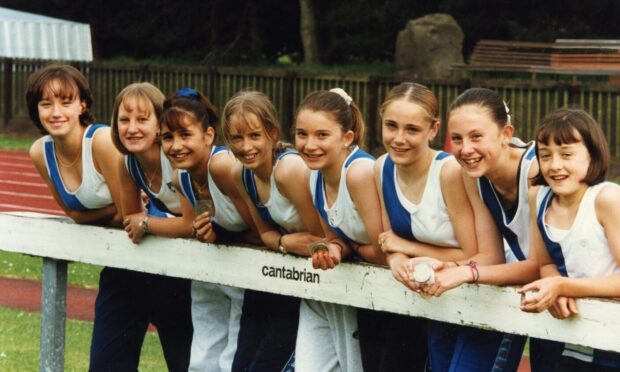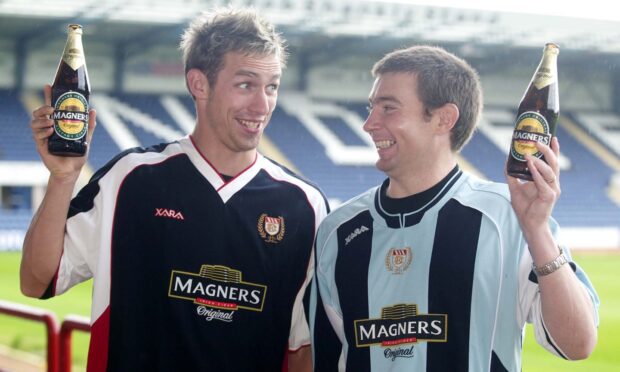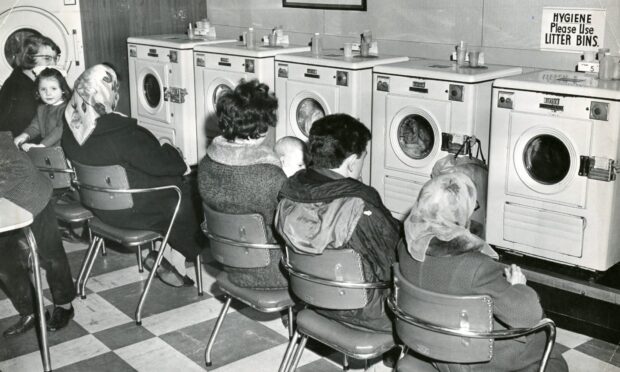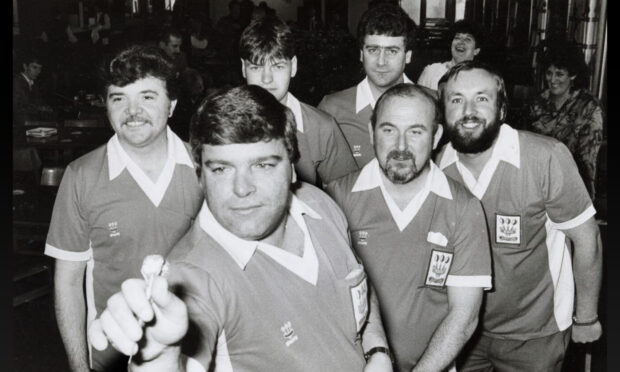Dundee has a place of special significance in the glittering career of super-striker Andy Gray.
It was in the City of Discovery that he burst on to the scene as a goalscoring machine with Dundee United.
Then, after a 16-year period during which he took English football by storm, his last top-level goals were scored along the road from Tannadice, at Dens Park.
As a veteran, he had been brought back to Scotland by Graeme Souness to bolster his Rangers squad as they won the first of nine successive league titles.
Gray believes he just might have been able to drive the team he had supported from boyhood to further glory that season had it not been for a controversial selection decision by Souness just before kick-off in a Hampden cup final.
Derailing Celtic’s Holy Grail bid…
The 1988-89 season was not the first time, however, that Andy Gray had made an impact on Old Firm ambitions to reach the fabled ten in a row.
It was as a 19-year-old, while wearing the tangerine of Dundee United rather than the royal blue of Rangers, that he had a not insignificant part in foiling Celtic’s attempts to grasp the Holy Grail.
If the goal he scored on March 15 1975 did not win the league for Rangers, it certainly did them no harm.
This was a pivotal day in the chase for the championship.
Celtic and Jock Stein, chasing 10 in a row, were playing Dundee United at Parkhead.
Eighty-five miles away, Rangers, who were desperately trying to win their first league title since 1964, faced a tough contest against Dundee at Dens Park.
The psychological advantage was already with the Ibrox side, as Celtic’s league campaign had begun to falter.
But with less than two minutes on the clock at Dens, Rangers were in trouble, one nil down after a goal by Bobby Hutchinson.
Matters got even worse when striker Colin Stein was sent off.
Incensed Rangers fans behind the Dundee goal staged a pitch invasion and bottles flew amid ugly scenes.
The supporters might have been rather more calm if they had they known what had happened a few minutes before at Parkhead.
Dundee United had taken the lead after 32 minutes, thanks to Gray.
“I don’t remember much about the game,” he recalls.
“But I do remember the goal! Duncan MacLeod took the corner for United on the left and I lost big Billy McNeill. It was a great ball in. It was just saying ‘’head me’.
“It wasn’t one of my most textbook headers because I had got up a wee bit too high for it.
“I was trying to put power into it and instead of the ball going straight at a little downward angle, I powered it almost straight down into the ground.
“It bounced high and I thought it was going to clear the bar but it just nicked in underneath.”
Meanwhile, as half time approached back at Dens Park the crowd disturbance had been brought under control and the first half fan frenzy had died down.
The 10-man Gers rallied and eventually won 2-1.
This was an afternoon that supercharged the momentum of Rangers towards the league flag and effectively ended Celtic’s dream of 10 in a row.
Two weeks later Rangers clinched the title against Hibs in a 1-1 draw with Colin Stein heading in the vital goal.
The Jim McLean factor
The fact that Andy Gray grew up a passionate Rangers supporter was not a part of his professional mindset that day in March 1975.
His primary responsibility was towards Dundee United.
And for good reason, as a stellar professional career had been forged at Tannadice.
After signing in May 1973, the influence of manager Jim McLean on his development has been well documented.
“Within a couple of months he’d given me my chance and he kept on at me and he kept working me.
“Without that I could have been an ordinary, bang average centre forward who would maybe have achieved very little. But because of what he drummed into me between the ages of 17 and 19, I was able to take that with me all my career.”
It meant Gray becoming a first-team regular and, aided by an often spectacular aerial prowess, a deadly striker.
In his first season he scored 19 times in 37 matches, with United reaching the final of the 1974 Scottish Cup.
The full fruits of his development under Jim McLean became all too apparent in his second season. In 1974-75 he scored 26 times in 46 appearances.
“It was a season where everything I touched turned to gold. I had a fierce determination to make a success of what I was doing and nothing was going to stop me.
“Every time I went on the pitch I thought I was going to score a goal and when I didn’t I was disappointed. If I wasn’t scoring I was helping to make goals. It couldn’t have gone any better.”
Inevitably, such a potent scoring record attracted interest from south of the border and Aston Villa signed Gray in October 1975 for £110,000, which was then a record for both clubs.
He went on to light up English football for more than 10 years including:
- Being joint winner of England’s Golden Boot with Arsenal’s Malcolm Macdonald in season 1976/77.
- Winning both the PFA Young Player of the Year and PFA Players’ Player of the Year Award in the same season.
- Scoring the winning goal in the 1980 League Cup Final for Wolves against Nottingham Forest.
- Scoring for Everton in their 1984 FA Cup final triumph.
- Capturing the 1984-85 League Championship with Everton.
- Winning the 1985 European Cup Winners’ Cup and scoring in the final.
At the beginning of the 1988/89 season, his career was winding down.
Six operations on his right knee had taken their toll. He was with West Bromwich Albion when a call came out of the blue from Rangers.
Heading off to Ibrox
It took little persuasion to entice Gray to join the revolution started by Graeme Souness as back up to his main strike force of Ally McCoist and Kevin Drinkell.
“Graeme Souness told me he wasn’t going to mess me about.
“He wanted to be able to use me every now and again as a player and for what I could give in the dressing room pre-match and around the place in general.
“Of course I was going to go! It had always been my ambition.”
During that season he scored five times in 14 appearances, all but three of them when he came off the bench.
It was his own contribution to the first of nine league titles in a row.
But Gray feels his one season at Ibrox could have reached an even more treasured climax if he had been able to play one last game for Rangers.
On May 20 1989, Rangers were facing Celtic in the Scottish Cup Final.
During that season he had been on the substitutes bench with the great Davie Cooper on a number of occasions.
He was optimistic about being so again for the Old Firm clash at Hampden.
Graeme Souness had others ideas.
“I would’ve loved to have played a part in it. Graeme and me have a laugh about it now but I wasn’t laughing at the time.
“In the dressing room before the game, he went through the line up and when he got to the substitutes he announced – ‘ Davie Cooper… and me.’
“It took me completely by surprise. I thought it was going to be my last game. I knew I was retiring at the end of the season. I knew I was only going to be there for the year.
“We had won the league – brilliant. To have a league winner’s medal in England and Scotland, fantastic. But I had built up for the game. I was ready for it as well.
“I was absolutely devastated when he said I wasn’t on the bench. There was no reason not to have put me on the bench.”
Subsequent events may have led the manager to regret his decision.
Joe Miller scored for Celtic in the first half and Billy McNeill’s side won the cup.
For the man himself, it was a case of what might have been.
“Joe Miller spoiled the party. Graeme brought himself on but by then he had gone.
“He couldn’t get about the pitch the same. Davie Cooper came on but we couldn’t get back in it.
“I always thought that if I’d gone on there was a better chance of me getting a goal than Graeme.”
Dens Park epitaph
But Gray – who also played 20 times for Scotland and scored seven goals – is able to console himself with a number of reasons to be cheerful.
He ended his career with the club he supported as a boy, scored for them and won the first of nine titles in a row.
It was two weeks before the cup final that he actually played his last game – at Dens Park.
His two goals in a 2-1 win against Dundee brought a very pleasing symmetry to his career.
“I joined Dundee United and made my full debut against East Fife at Tannadice and played my last game as a professional for Rangers just across the road at Dens.
“I scored in both. You couldn’t write that. My career was topped and tailed beautifully.”
